Sergio González teaches Latinx Studies in the Departments of History and of Languages, Literatures, and Cultures at Marquette University. A native of Milwaukee, he received his PhD from the University of Wisconsin-Madison in the spring of 2018. During this time at UW-Madison, Sergio was the founding editor of Wisconsin101. His research interests include twentieth-century American labor, working-class, and immigration history, with specific research interests including the development of Mexican-American communities in urban areas in the American Midwest in the twentieth century.
By This Author:
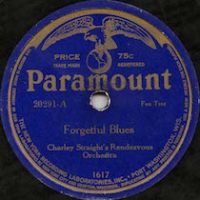
OBJECT HISTORY: Paramount Records 78
Created by the management of the Wisconsin Chair Company, a furniture making business based in Port Washington, Wisconsin, Paramount Records was initially incorporated to help sell phonograph cabinets in the late 1910s.

OBJECT HISTORY: Piano and Song Recital Poster
Mr. Raphael Baez, a well-respected violinist, pianist, composer, and music professor, and his wife Mrs. Mary Schoen Baez, a noted vocalist, performed together in various music halls in the city of Milwaukee since 1889.Signs like the one above would be posted throughout the city of Milwaukee in the week leading up to the performance, advertising recitals open to the general public.
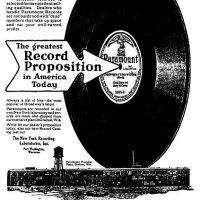
Paramount Records
Like other record companies in the post-war years, Paramount entered the new field of “race music” in 1922 and began producing music by black artists for black customers. Just one year later, the Wisconsin company had solidified its status as one of the leading “race label” companies in the United States.
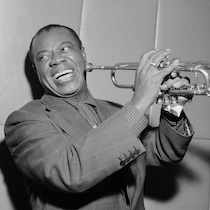
Recruiting Talent
With a roster that included Louis Armstrong, Jelly Roll Morton, and Ethel Waters, Paramount Records became perhaps the most important blues recording company of the 1920s. Their success was dependent on their ability to recruit black performers and reach a broad black audience.
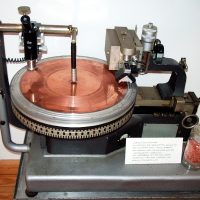
The Record Production Process
Paramount Record’s parent company, the United Phonographic Corporation, a subsidiary of the Wisconsin Chair Company, decided to begin recording and pressing records to include with their phonograph cabinets in the early 1920s. Paramount eventually created their own recording studio inside the same Grafton plant pressing their records.
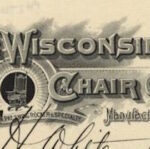
The Wisconsin Chair Company
Founded in 1888 by Frederick A. Dennett, the Wisconsin Chair Company (WCC) was perhaps the most important business in Ozaukee County at the end of the nineteenth and beginning of the twentieth century. Throughout its over fifty-year history, the WCC produced a multitude of products, including beds, cabinets, and even phonograph cabinets.